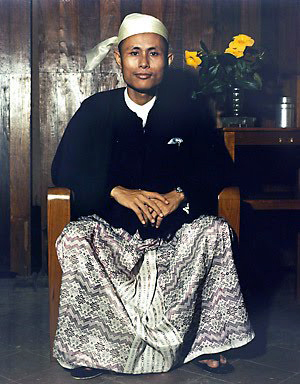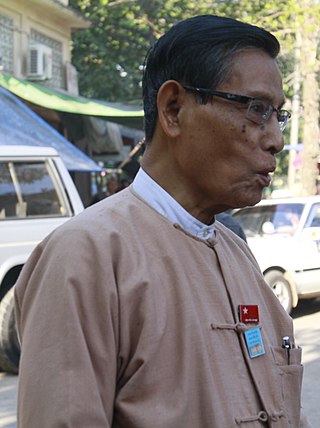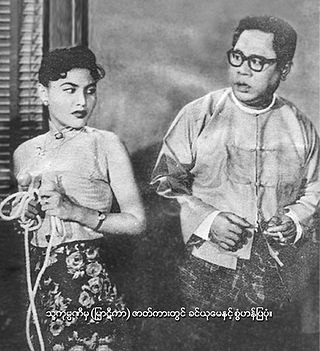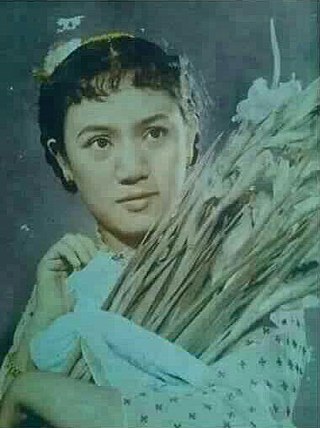
The Tatmadaw or Sit-Tat is the armed forces of Myanmar. It is administered by the Ministry of Defence and composed of the Myanmar Army, the Myanmar Navy and the Myanmar Air Force. Auxiliary services include the Myanmar Police Force, the Border Guard Forces, the Myanmar Coast Guard, and the People's Militia Units. Since independence in 1948, the Tatmadaw has faced significant ethnic insurgencies, especially in Chin, Kachin, Kayin, Kayah, and Shan states. General Ne Win took control of the country in a 1962 coup d'état, attempting to build an autarkic society called the Burmese Way to Socialism. Following the violent repression of nationwide protests in 1988, the military agreed to free elections in 1990, but ignored the resulting victory of the National League for Democracy and imprisoned its leader Aung San Suu Kyi. The 1990s also saw the escalation of the conflict involving Buddhists and Rohingya Muslims in Rakhine State due to RSO attacks on the Tatmadaw forces, which saw the Rohingya minority facing oppression and, starting in 2017, genocide.

Than Shwe is a retired Burmese army general who held influential positions within Myanmar's government. Serving as the chairman of the State Peace and Development Council (SPDC) from 1992 to 2011, he played a significant role in shaping the country's political landscape. During his tenure, he exercised considerable authority, contributing to a centralized power structure. His governance saw the implementation of various policies aimed at economic development, modernization and infrastructure improvements. Than Shwe was also involved in efforts to stabilize the country and manage internal conflicts. While his leadership was marked by significant achievements, it also faced scrutiny and criticism, particularly regarding allegations of human rights abuses and restrictions on political freedoms. Than Shwe's tenure coincided with a period of political transition and international scrutiny, with Myanmar experiencing both internal and external challenges.

Bogyoke Aung San was a Burmese politician, independence activist and revolutionary. He was instrumental in Myanmar's struggle for independence from British rule, but he was assassinated just six months before his goal was realized. Aung San is considered to be the founder of modern-day Myanmar and the Tatmadaw, and is commonly referred to by the titles "Father of the Nation", "Father of Independence", and "Father of the Tatmadaw".

Nu, commonly known as U Nu and also by the honorific name Thakin Nu, was a prominent Burmese statesman and the first Prime Minister of Union of Burma. He was educated at Rangoon University, where he developed his political ideas and became actively involved in the student movement. Nu's involvement in the nationalist movement deepened during his university years, and he quickly emerged as a leading figure advocating for Burma's independence from British colonial rule.

The Burma Independence Army (BIA) was a pro-Japanese and revolutionary army that fought for the end of British rule in Burma by assisting the Japanese in their conquest of the country in 1942 during World War II. It was the first post-colonial army in Burmese history. The BIA was formed from a group known as the Thirty Comrades under the auspices of the Imperial Japanese Army after training the Burmese nationalists in 1941. The BIA's attempts at establishing a government during the invasion led to it being dissolved by the Japanese and the smaller Burma Defence Army (BDA) formed in its place. As Japan guided Burma towards nominal independence, the BDA was expanded into the Burma National Army (BNA) of the State of Burma, a puppet state under Ba Maw, in 1943.
This article describes the religious, military and civil orders, decorations and medals of the Union of Myanmar.

Private Aung San Thuriya Hla Thaung of 3rd Burma Rifles Battalion was a recipient of Aung San Thuriya Award, the highest and most prestigious award in Myanmar (Burma) for gallantry and bravery in the face of the enemy. He won the award at the Battle of Daik-U during the fight against of Karen insurgency in Myanmar.

Captain Aung San Thuriya Thuya Taik Chon (aka) Captain Taik Chon was the only Chin (Matu) soldier to have received both Thuya and Aung San Thuriya Medal, the highest and most prestigious award for gallantry and bravery in the face of the enemy that can be awarded to members of Myanmar Armed Forces. He won the award at the Raid on U Seikkein Monastery at Battle of Insein near during the fight against of Karen insurgency in Myanmar.
Saw Ba Yi is an ethnic Karen and the only civilian to have won the Aung San Thuriya Medal, the highest award for gallantry and bravery in Burma (Myanmar) in 1951. Under normal circumstances, the medal is only awarded to members of the Myanmar Armed Forces.

Tin Oo, often referred to as U Tin Oo, was a Burmese politician, activist, and general in the Armed Forces who was one of the founders of the National League for Democracy (NLD) in Myanmar, the country's largest pro-democracy political party.

The Myanmar Army is the largest branch of the Tatmadaw, the armed forces of Myanmar, and has the primary responsibility of conducting land-based military operations. The Myanmar Army maintains the second largest active force in Southeast Asia after the People's Army of Vietnam. It has clashed against ethnic and political insurgents since its inception in 1948.

Po Par Gyi was a popular traditional Burmese opera performer and two-time Myanmar Academy Award winning actor known for his comic roles.

Burmese Gurkhas are a group of Nepali language speaking Burmese people of Khas/Gurkha ethnic group living in Myanmar. While the Gurkhas have lived in Burma for many centuries, it was during the British rule in Burma, that the majority of the Gurkha migrated from Nepal.

The Communist Party of Burma (CPB), also known as the Burma Communist Party (BCP), is an underground communist party in Myanmar (Burma). It is the oldest existing political party in the country.

Private Aung San Thuriya Suk Bahadur Rai was the only Gurkha to have received Aung San Thuriya medal, the highest and most prestigious award in Myanmar (Burma) for gallantry and bravery in the face of enemy.
Kyaw Nyein, called honorifically U Kyaw Nyein, was a Burmese lawyer and anti-colonial revolutionary, a leader in Burma’s struggle for independence and prominent politician in the first decade after the country gained sovereignty from Britain. He held multiple minister portfolios in the government of Prime Minister U Nu, served as General Secretary of the ruling political alliance, Anti-Fascist People's Freedom League (AFPFL), and was joint General Secretary of the Burma Socialist Party (BSP).

The communist insurgency in Burma was waged primarily by the Communist Party of Burma and the Communist Party (Burma) from 1948 to 1989. The conflict ended when the CPB, severely weakened by an internal mutiny, disbanded its armed wing.

Thu Riya is a Burmese actor, model, television presenter, and a comedian. He has starred in over 40 films in his acting career.

May Thit was a Burmese actress and singer. She won Best Actress Award for 1960, Best Supporting Actress Award for 1964 and 1976 in Myanmar Motion Picture Academy Awards. She was famous around between 1950s and 1990s.
















